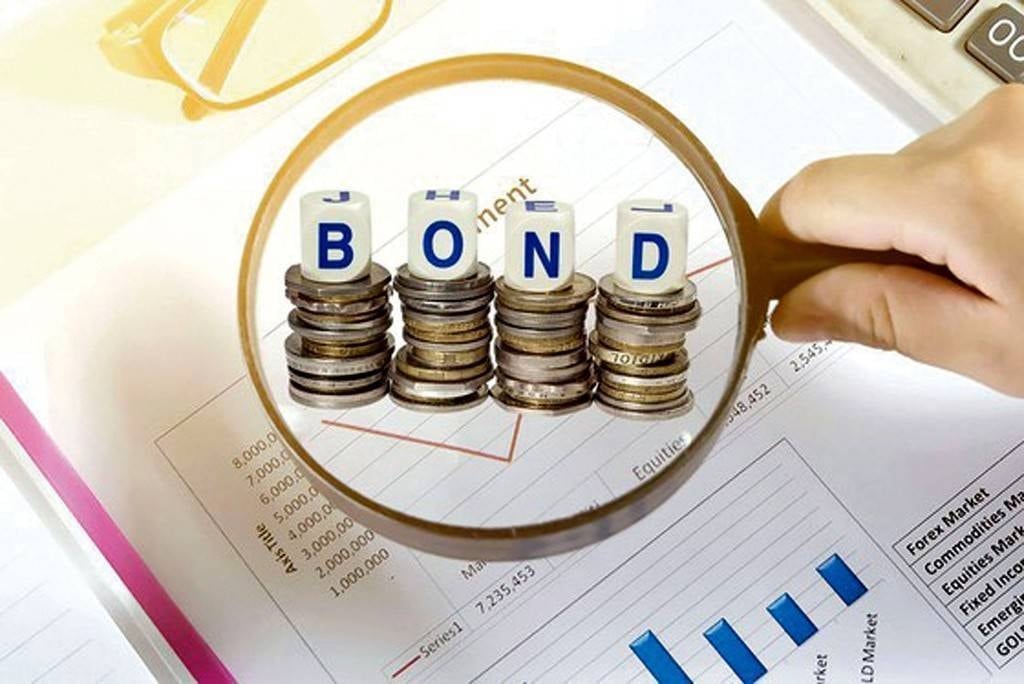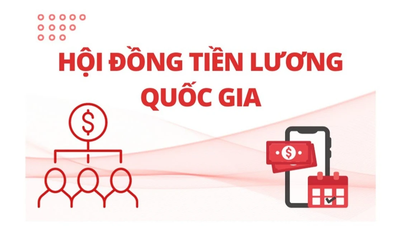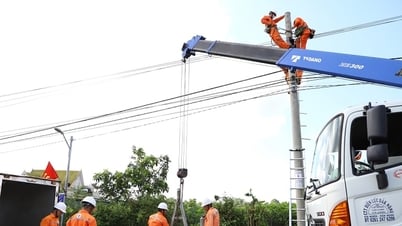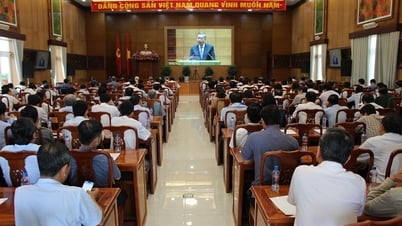Investors still "put money down" despite the risks
After a period of tightening and slowing down, the corporate bond market is witnessing a strong return of unsecured bonds. Many businesses are returning to issue this type of bond to raise capital in the context of increasing investment demand, cooling interest rates and still having many barriers to bank credit. This reflects changes in capital mobilization demand and risk appetite in the market.
Unsecured bonds are issued primarily by companies that need to raise capital quickly without collateral or third-party guarantees. In volatile economic conditions, companies seek to optimize their capital to maintain operations, leading to the increasing popularity of issuing this type of bond. High interest rates, flexible terms, and the ability to mobilize quickly are factors that attract businesses to choose this form. The rate of unsecured bond issuance is on the rise compared to difficult times in the market, when investors strongly prefer types of bonds with solid collateral.

According to data from the Vietnam Bond Market Association (VBMA), in the first four months of 2025, the total value of corporate bonds issued reached more than VND95,000 billion, of which nearly 60% were unsecured bonds. Notably, many enterprises in the real estate, construction and finance sectors – which were under liquidity pressure in 2023 – are returning to the market with large issuance scales.
These issues usually have a term of 2-4 years, interest rates ranging from 9%-12%/year, and are mainly offered privately to professional investors.
Without specific assets to secure, the investor’s ability to recover capital will depend entirely on the solvency and financial situation of the issuing enterprise. When the enterprise encounters difficulties or goes bankrupt, the investor may face the risk of losing all or most of the investment. Although the legal framework has been improved, access to full and accurate information about the financial situation, business operations, and debt repayment capacity of the enterprise issuing unsecured bonds remains a challenge for many investors. In addition, unsecured bonds may be less liquid in the secondary market, making it difficult for investors to resell before maturity.
Although there is no collateral – that is, no specific assets (real estate, stocks, cash) – this type of bond is still accepted by many investors to invest. The reason is that the interest rate of this type of bond is higher than savings and government bonds. Investors expect the recovery of the real estate and business markets, creating confidence in the ability to repay debts. In addition, the market is also lacking attractive alternative investment channels, especially during the period when the stock market is still volatile.
Mr. Le Minh Hai, analysis director at a securities company, said: "Investors are accepting higher risks in exchange for high yields. But this is a double-edged sword if there is not enough transparent information from the issuing company."
Will the old risks return?
The boom in unsecured bonds is causing experts to worry about the risk of a repeat of the crisis of confidence that occurred in 2022-2023, when a series of businesses defaulted or delayed bond payments.
The amended Law on Corporate Bonds, effective from early 2024, has strengthened regulations on information disclosure and bond distribution, however, enforcement supervision of these regulations remains limited.
Specifically, Decree 08/2023/ND-CP allows businesses to extend the payment of principal and interest on bonds for up to 2 years, reducing maturity pressure and restoring confidence. As of April 2025, VND 80,000 billion worth of bonds have been successfully extended. Decree 65/2022/ND-CP amends the requirement for information transparency, forcing businesses to disclose the purpose of capital use and periodic financial reports. This helps investors better assess risks, especially with unsecured bonds.

Dr. Nguyen Thi Lan Huong, a financial expert at the Institute for Digital Economic Development Research, commented: "Allowing the issuance of unsecured bonds is necessary to diversify products, but it is necessary to strictly control the purpose of capital use and the financial capacity of the issuer."
Currently, some brokerage firms are still marketing this type of bond to non-professional individual investors, in the form of cooperation contracts or trust investments, which pose legal risks if disputes arise.
The State Securities Commission and the Ministry of Finance have repeatedly warned: investors should only invest in individual bonds when they truly understand the risks and have the ability to analyze corporate finances. Investors also need to carefully check financial statements, debt payment history and capital issuance purposes.
The resurgence of unsecured corporate bonds shows that the demand for capital mobilization in the economy is still very large, and reflects the flexibility of enterprises in accessing financial resources. However, risks still exist if there is a lack of transparency, lax supervision and investors chase interest rates while ignoring capital safety.
Lessons from the difficulties of the corporate bond market in the past show the importance of information transparency, improving the quality of issuing organizations and the ability of investors to analyze and assess risks.
In the context of the "blooming" of unsecured bonds, management agencies need to continue to strengthen supervision and improve the legal framework to ensure the healthy development of the market. For investors, equipping themselves with knowledge, thoroughly researching the issuing enterprise, and correctly assessing the level of risk before deciding to invest are vital factors to protect their assets.
The recovery of the corporate bond market, including the increase in unsecured bonds, is a positive signal that this important capital mobilization channel is gradually regaining momentum. However, to ensure sustainable development, there needs to be joint efforts from lawmakers, issuers, intermediaries and investors themselves to improve the professionalism and transparency of the market.
Source: https://baodaknong.vn/trai-phieu-doanh-nghiep-khong-tai-san-dam-bao-lai-no-ro-rui-ro-tiem-an-trong-lan-song-moi-253029.html






![[Photo] Top players gather at the 2025 Nhan Dan Newspaper National Table Tennis Championship](https://vphoto.vietnam.vn/thumb/1200x675/vietnam/resource/IMAGE/2025/5/23/9ad5f6f4faf146b08335e5c446edb107)
![[Photo] Anh Hoang - Dinh Duc successfully defended the men's doubles championship of the National Table Tennis Championship of Nhan Dan Newspaper](https://vphoto.vietnam.vn/thumb/1200x675/vietnam/resource/IMAGE/2025/5/23/d6ab3bcac02c49928b38c729d795cac6)



















































































Comment (0)